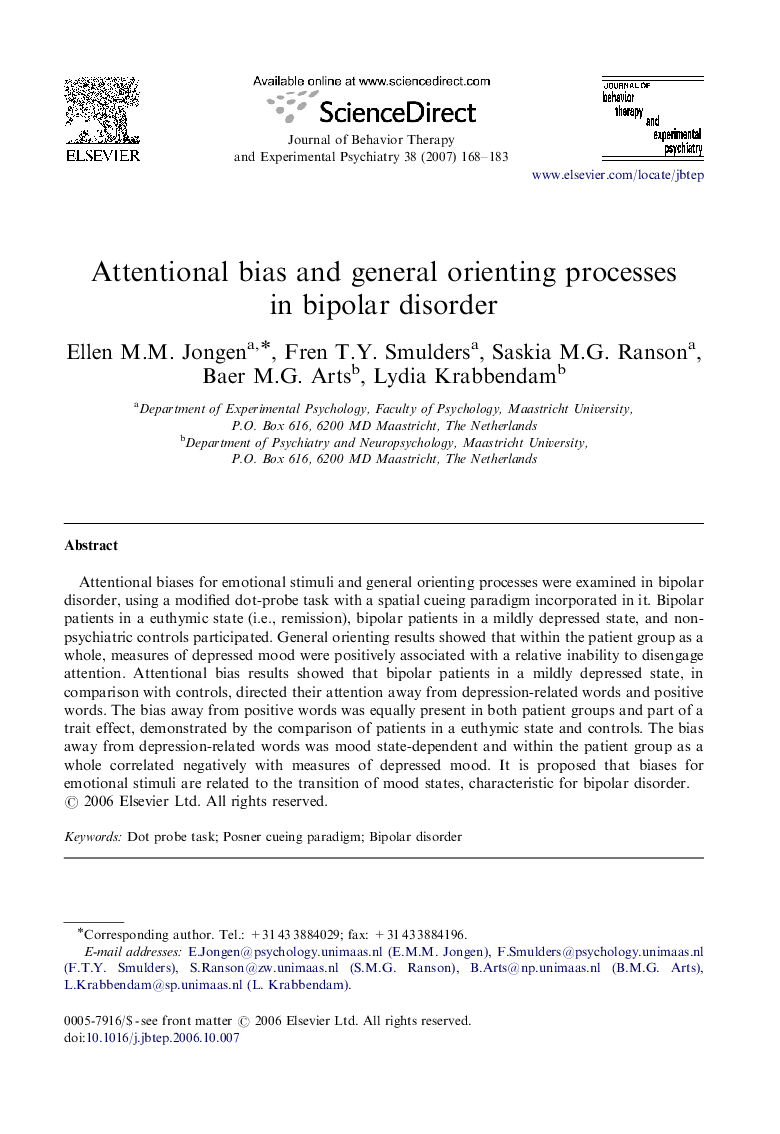| Article ID | Journal | Published Year | Pages | File Type |
|---|---|---|---|---|
| 910640 | Journal of Behavior Therapy and Experimental Psychiatry | 2007 | 16 Pages |
Attentional biases for emotional stimuli and general orienting processes were examined in bipolar disorder, using a modified dot-probe task with a spatial cueing paradigm incorporated in it. Bipolar patients in a euthymic state (i.e., remission), bipolar patients in a mildly depressed state, and non-psychiatric controls participated. General orienting results showed that within the patient group as a whole, measures of depressed mood were positively associated with a relative inability to disengage attention. Attentional bias results showed that bipolar patients in a mildly depressed state, in comparison with controls, directed their attention away from depression-related words and positive words. The bias away from positive words was equally present in both patient groups and part of a trait effect, demonstrated by the comparison of patients in a euthymic state and controls. The bias away from depression-related words was mood state-dependent and within the patient group as a whole correlated negatively with measures of depressed mood. It is proposed that biases for emotional stimuli are related to the transition of mood states, characteristic for bipolar disorder.
